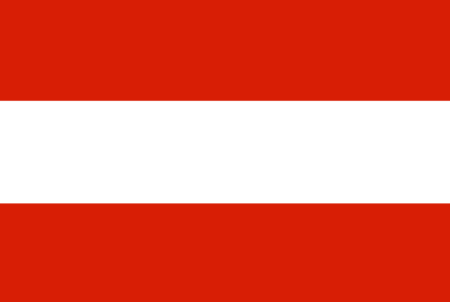Austria – National Strategy Against Antisemitism (2021)
Summary
This comprehensive strategy to prevent and combat all forms of antisemitism is intended to set out the scope of responsibility and to shape the future. It is a contribution to the reinforcement and protection of democratic values and fundamental rights in Europe. The strategy includes aims for various different areas, including education and training, research, security, justice, integration and civil society, which are to be achieved by means of operative measures.
These preventive and reactive measures will serve, on the one hand, to guarantee the greatest possible security for Jews in society: in future, Antisemitic agitation, attacks and assaults in the analogue and the virtual world must be prevented and, at the very least, combatted effectively. There should be an appropriate response to antisemitism, its victims are to be supported and antisemitic offences and hate crimes must be recorded and analysed.
On the other hand, the spread of Antisemitism within Austrian society – from whatever direction it comes – must be prevented. So preventive work is important on widely differing levels, in order to increase knowledge and awareness. Jewish life must be able to evolve without fear and threats.
Today Austria is already implementing measures in various different areas, and these are to serve as best practice examples of ways in which antisemitism is being prevented and combatted, in particular in relation to the protection of Jewish institutions. Nevertheless, there needs to be a high degree of attentiveness in all walks of life today.
There are fundamental challenges to social cohesion, social harmony and security in free, democratic societies. So the question is how to effectively eliminate the breeding-ground of Antisemitism, extremism, radicalisation and terrorism. One way or another, one thing is clear: the law enforcement authorities cannot tackle these challenges on their own, rooting them out with repressive instruments. What is needed, instead, is cooperative action on the part of many protagonists, using a proactive societal approach.
In order to prevent and combat all forms of antisemitism in Austria, the following aims and practical initiatives are intended to be implemented:
Aims
The Republic of Austria has developed the following strategy with the aims of securing the continued long-term existence of Jewish life in Austria, curbing antisemitism in all its forms and creating an awareness which recognises antisemitism in everyday life.
The following strategic pillars and objectives are crucial to achieve these aims:
- Education, training and research
Implementation and financing of theme-based scientific and artistic research projects, continuing professional development of teachers and educationalists, together with expansion of training opportunities, especially in out-of-school settings - The security and protection of Jewish communities and institutions
Promotion of security measures to protect Jews and Jewish communities and institutions - Effective law enforcement
Ensuring the effective prosecution of antisemitism and the closure of legal loopholes - General conditions in the area of integration
Increased communication of and focus on the prevention of antisemitism in the area of integration - Documentation and Europe-wide comparison of data
Harmonisation of documentation and Europe-wide data comparison in relation to cases of antisemitism and antisemitic offences - Societal approach
Ensuring society-wide action and exchange between state and private institutions with a view to preventing Antisemitism in all its forms
Measures
To achieve these objectives the following measures are being implemented under each of the strategic pillars:
- A three-fold increase, to four million euros, in investments to protect Jewish institutions and to promote Jewish life, guaranteed in law for the long term.
- Preparations for a Centre for Antisemitism Research to be established by the Austrian Federal Ministry of Education, Science and Research for the forthcoming 2021–2023 service agreement with the Austrian Academy of Sciences and with the creation of a research centre in the Documentation Centre of Austrian Resistance (DÖW).
- Establishment of a platform for ongoing society-wide coordination. The members of this platform from the federal government, the states, communities, corporate bodies, civic institutions, NGOs, sports associations, youth organisations, the Jewish Religious Community, churches, religious communities and other bodies will meet regularly to discuss current developments and to put forward potential solutions.
- Evaluation and potential legislative revision of the Austrian Prohibition Act (VerbotsG), the Act on the Use of Symbols (Symbole-Gesetz) and the Austrian Insignia Act (AbzG) with reference to domestic jurisdiction, particularly with regard to the crimes of expression referred to under Sections 3g and 3f VerbotsG, and closing of the existing loopholes.
- Examination of the possibility of confiscating National Socialist memorabilia within the scope of proceedings under the VerbotsG, regardless of whether a punishable act is established, and evaluating the AbzG.
- Monitoring of the domestic data position with regard to the recording of antisemitic incidents, and harmonisation by the BMI and BMJ with civil society organisations up to the end of 2021.
- Preparation of a documentation centre relating to the prevention and combatting of antisemitism with reference to the Antisemitism Reporting Office of the IKG and other stakeholders.
- Active cooperation at European level in promoting the comparability of the data collected by member states.
- Establishment of a coordinated Austria-wide consortium to participate in the European Holocaust Research Infrastructure (EHRI), involving all stakeholders.
- Strengthening coordination between the individual stakeholders in the area of Antisemitism information and prevention in schools in order to reach as many schools and young people as possible.
- Increase of protection against violence and hate online: implementation of a package of measures for efficient combatting of online hate and other forms of digital crime.
- Invitation to specific institutions to join with the National Committee on No Hate Speech, so that they may contribute their commitment to investigating and combatting Antisemitism and impart their specific expertise to the network.
- Future stepping-up of the already existing exchange between the BMAFJ-financed advisory services (Extremism Advice Centre, GegenHassimNetz Advice Centre, Federal Agency for Sectarian Issues) and a focus on Antisemitism.
- Delivering courses in values and orientation developed by the Austrian Integration Fund (ÖIF) to people granted the right to asylum or subsidiary protection, which also address the dismantling of antisemitic prejudices.
- Set up of an international research project to prepare a catalogue of qualifications and measures for appropriate training and continuing education of teachers in the areas of antisemitism prevention, the Holocaust and National Socialism, and anti-racist educational work. Implementation of the recommendations of the research group in training curricula and in the continuing education of teachers.
- Evaluation and assessment of the quality of the current training curricula for teachers on the basis of the results and recommendations of the international research project, especially on the topics of Antisemitism, the Holocaust and National Socialism as well as anti-racist educational work.
- Expansion of the educational offers for teachers on current challenges in dealing with antisemitism and racism, and promotion of cooperation and exchange measures with international educational institutions, including with Israel.
- Processing and utilisation of existing literature and scientific findings so that they can be employed by schools and school supervisors in order to handle antisemitic incidents in a reasonable manner.
- Revision of the existing teaching materials to reflect current challenges on the topic of Antisemitism.
- Supplementing and reinforcing the basic training courses in general public administration, the police force and work-based continuing professional development by adding specific teaching content on “antisemitism – education as a weapon against prejudice – early detection –awareness-building”.
- Promotion of dialogue projects that allow exchanges between young people from different backgrounds (different socialisation, nationalities, religions).
- Active communication of the significant contributions of Judaism to Austrian and European history in integration and educational contexts.
- Promoting awareness of and strengthening Jewish culture and communal life in Austria.
- Systematic implementation and regular evaluation of the security plan which has been prepared for Jewish institutes and communities.
- Education, training and continuing professional development measures provided on an ongoing basis to the security authorities, the judiciary and the defence services with the aim of raising awareness of the problem.
- Organisation of educational activities, events and visits to memorial sites by the Austrian Armed Forces in the context of the state and military education training model, with the aim of making a general government contribution to the promotion of human rights and as measures against totalitarianism, Antisemitism and racism.
- Stepping up cooperation between the security authorities and the Jewish Religious Community.
- Reinforcment of the collaborative work of the different specific protagonists with the Nationwide Network for Extremism Prevention and De-radicalisation (BNED).
- Compilation of a “National Action Plan for Extremism Prevention and De-radicalisation” by the BNED, containing concrete measures focussing on putting into effect integrated extremism prevention.
- Holding Multiplier Workshops by the Austrian Integration Fund in collaboration with the Jewish Religious Community to improve prevention work.
- Support of youth projects relating to integration that educate people about radicalisation, propaganda, Antisemitism and the importance of peaceful dialogue between cultures and religions.
- Introduction of a flag (indicator) for hate crimes (motivated by prejudice)
in the police logging system. Adopting a shared interface, to include the
Judicial Case Automation system (VJ), for setting this indicator, so as to systematically record and evaluate reports of antisemitic offences. - Continuation of scientific research into the responsibility of Parliament and additional comprehensive empirical collection of data relating to Antisemitism.
- Conduct of an in-depth study of Antisemitism in a migration and integration context.
- Consideration of the extension of existing training programmes offered by the Extremism Advice Centre for youth work, parental education and other areas to include an additional module on Antisemitism.
- Ongoing support for projects run by churches and religious communities promoting the breaking down of prejudices and the strengthening of social cohesion.
- Continuing development of school organisations and school culture, together with the education and training of teachers to enable them to meet the numerous different challenges in an appropriate way.
- Evaluation report of the measures adopted to be carried out in 2024 and annual submission of a report to the National Council for its attention.
The operational implementation of these measures is coordinated by the coordination unit set up for this purpose in the Directorate General IV for EU, International and General Affairs of the Austrian Federal Chancellery.
The strategy includes aims for various different areas, including education and training, research, security, justice, integration and civil society; these aims are to be achieved by means of operative measures.



 NOA is co-funded by the Rights, Equality and Citizenship Programme (2014-2020) of the European Union
NOA is co-funded by the Rights, Equality and Citizenship Programme (2014-2020) of the European Union